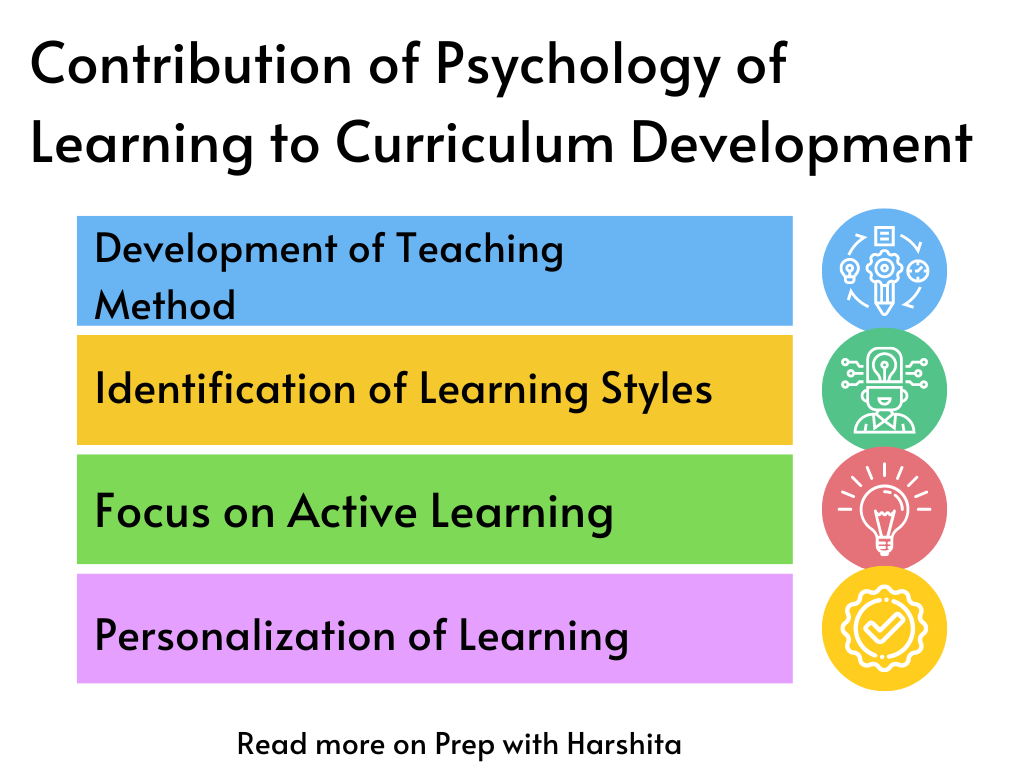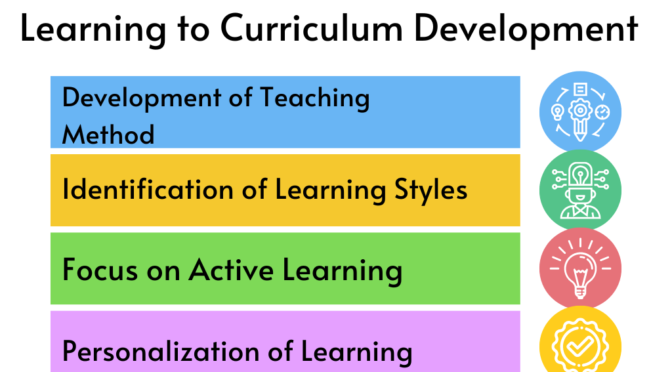The contribution of psychology of learning to curriculum development is quite significant. It provide educators with a better understanding of how students learn and retain information.
Here are some ways in which the psychology of learning has contributed to curriculum development:
- Development of teaching methods:
The psychology of learning has helped educators to develop teaching methods that are more effective in promoting student learning. By understanding how students learn and process information, educators can design lessons and activities that are better suited to the needs of individual learners. For example, the use of problem-based learning and project-based learning are effective methods for promoting student engagement and retention of information.
- Identification of learning styles:
The psychology of learning has also helped to identify different learning styles and preferences among students. By understanding these differences, educators can develop curriculum and teaching methods that cater to the needs and preferences of individual students. For example, some students may prefer visual aids, while others may prefer more hands-on activities.
- Emphasis on active learning:
The psychology of learning emphasizes the importance of active learning in promoting student engagement and retention of information. As a result, curriculum development has shifted towards incorporating more hands-on and experiential learning activities that encourage students to actively participate in their own learning. For example, group discussions, collaborative projects, and experiential learning activities such as field trips are effective methods for promoting active learning.
- Focus on motivation and engagement:
The psychology of learning has also highlighted the importance of motivation and engagement in promoting student learning. Curriculum development has therefore placed a greater emphasis on creating learning environments that are stimulating and engaging for students, and that encourage them to take an active role in their own learning. For example, gamification and the use of educational technology can be effective in promoting student engagement and motivation.
- Integration of technology:
The psychology of learning has also contributed to the integration of technology in curriculum development. Technology can be used to enhance learning by providing students with access to a wider range of resources and opportunities for interactive and collaborative learning. For example, the use of educational software, online platforms, and multimedia resources can be effective in promoting student engagement and understanding.
- Personalization of learning:
Finally, the psychology of learning has led to a greater emphasis on personalized learning. By understanding individual learning styles and preferences, educators can develop curriculum and teaching methods that are tailored to the needs of individual students. This can help to promote student engagement and retention of information, and can also help to address learning gaps and challenges.
Also Read : Adjustment in Psychology
In conclusion, the psychology of learning has made significant contributions to curriculum development by providing educators with a better understanding of how students learn and retain information. By incorporating these insights into curriculum development, educators can create learning environments that are more effective and engaging for students.
Also Visit : Prep with Harshita



One thought on “Contribution of Psychology of Learning to Curriculum Development”